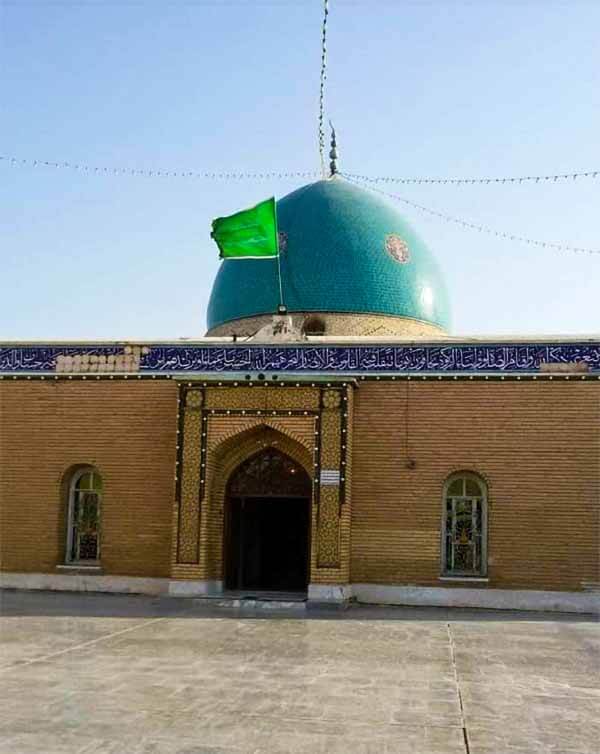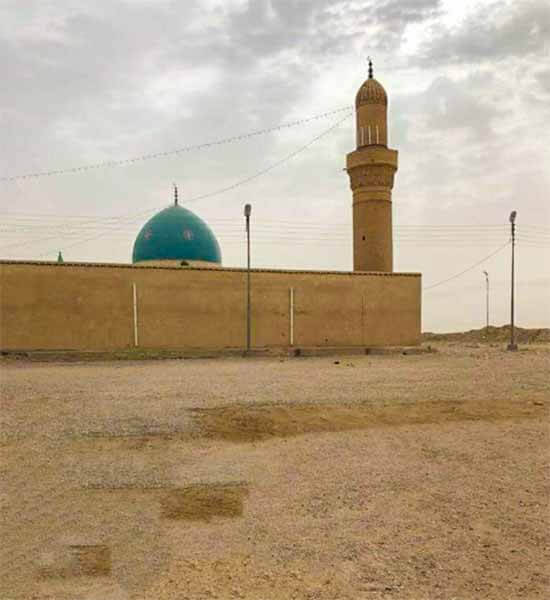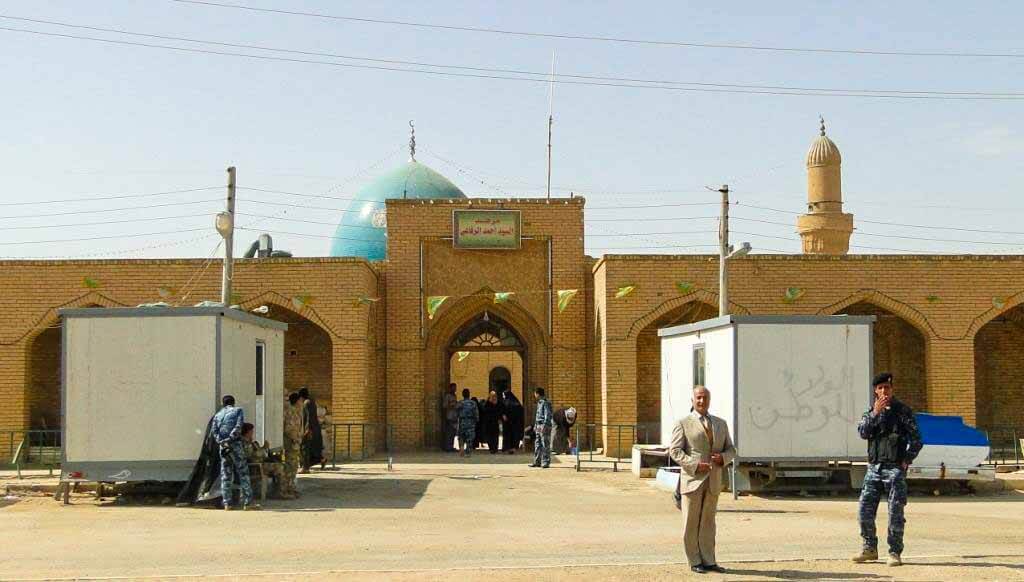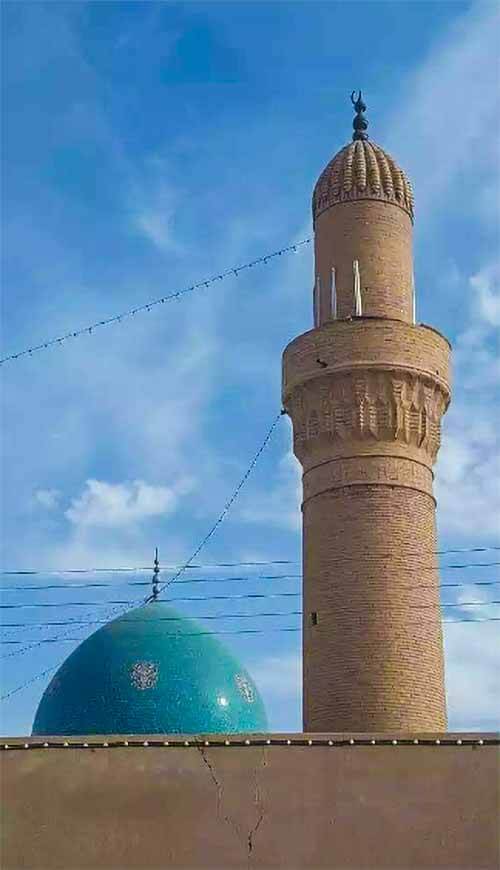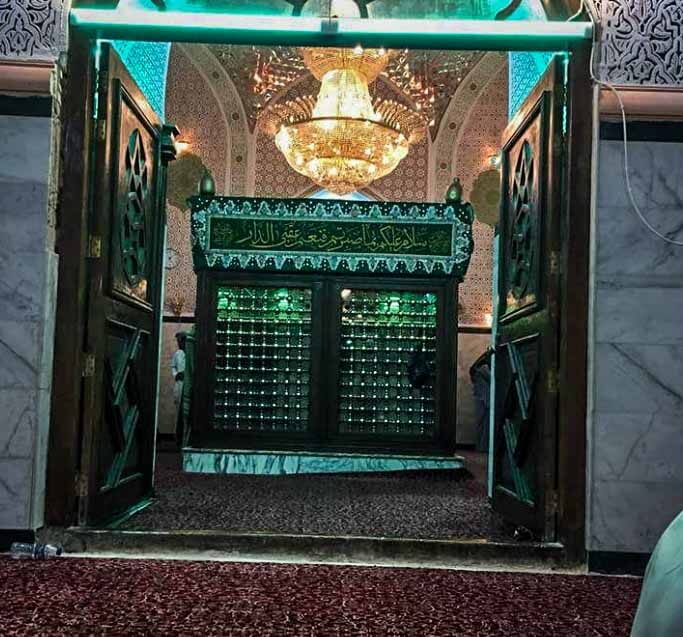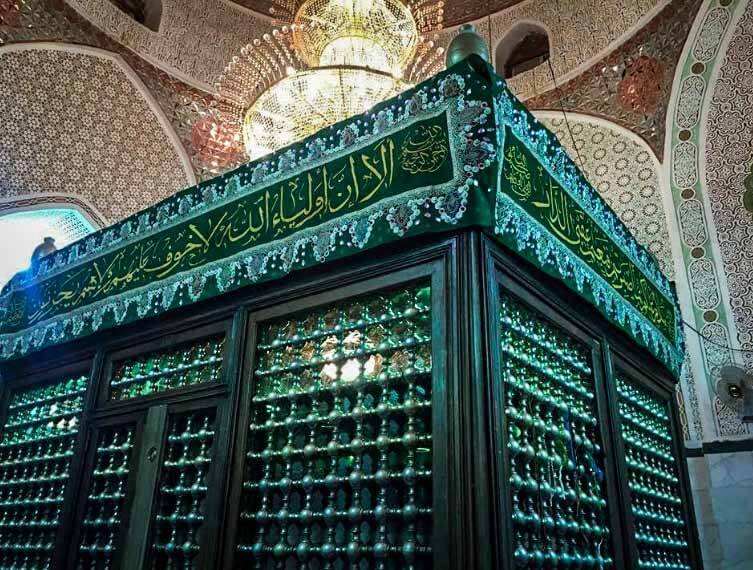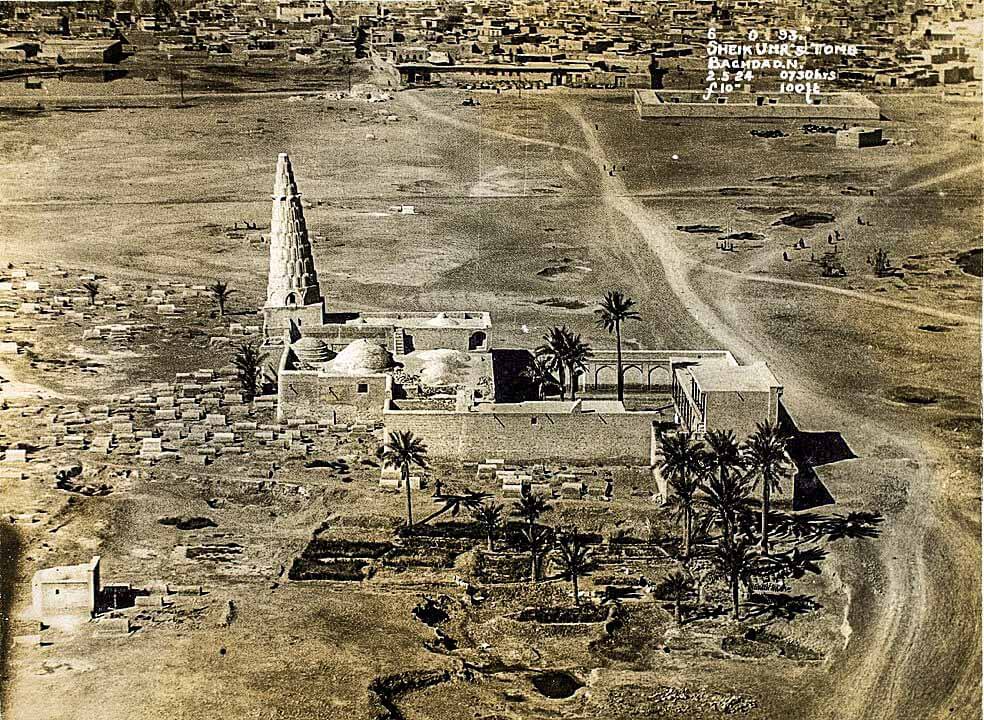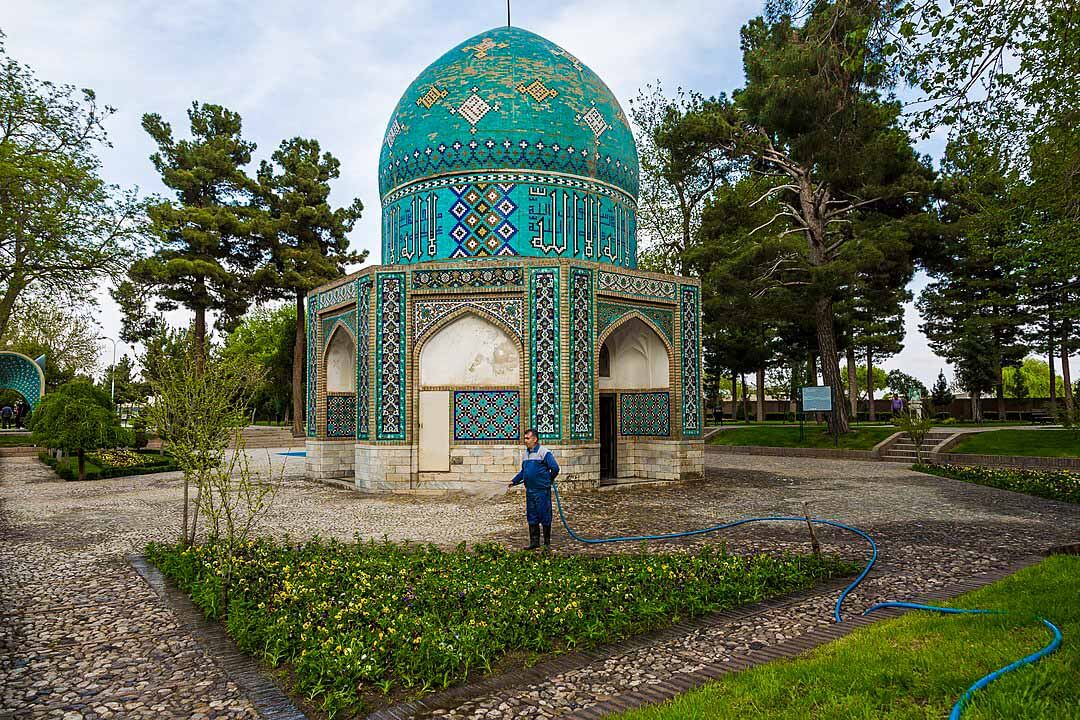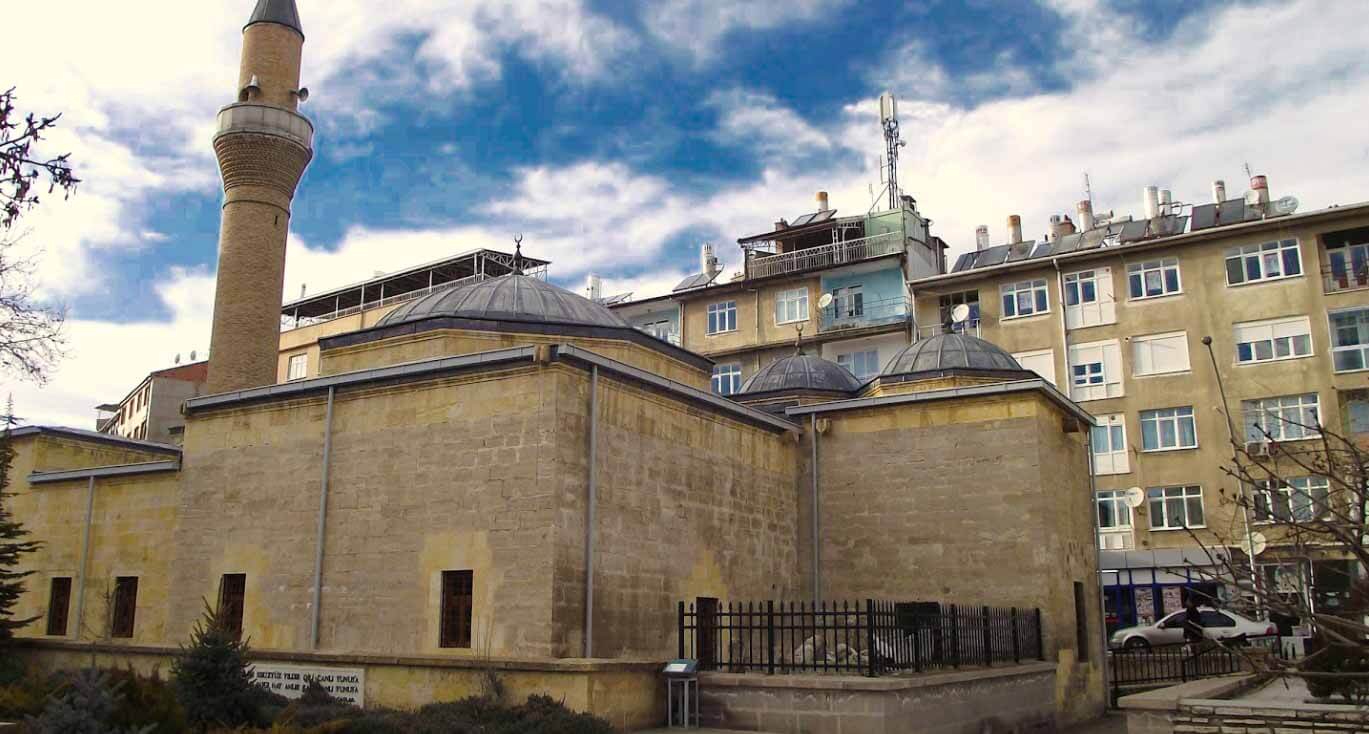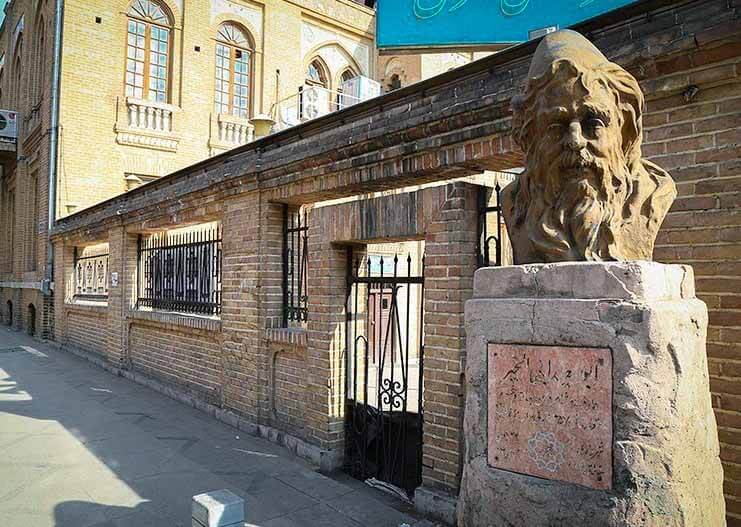Al Rifai City, Iraq
Coordinates: 31.719578, 46.106174
Hz. Ahmad al-Rifai رحمة الله عليه was the founder of the Rifai Sufi order. His tomb and shrine is located in southern Iraq, and is different from the one announced destroyed by the ISIS terrorists in 2014.
However, another shrine for him is located in the Al Rifai Mosque in Egypt.
Rifai Order
Rifai is an eminent Sufi order (tariqa) founded by Ahmed ar-Rifai and developed in the Lower Iraq marshlands between Wasit and Basra.
The Rifa’iyya had its greatest following until the 15th century C.E. when it was overtaken by the Qadiri order. The order is said to wield particular influence in Cairo, Egypt.
The Rifai order is most commonly found in the Arab Middle East but also in Turkey, the Balkans and South Asia.
His Life and Humbleness
Hz. Ahmad al-Rifai رحمة الله عليه dedicated his entire time to learning such religious knowledge to such an extent that eventually even his teachers respected him.
When he was twenty, Ebu Fadl Ali, the Sheikh of Wasit province and his teacher, awarded him a “Sehadetname” (which represented writings of evidences including canonical law and order of dervish sciences), and a nickname that was the father of external and interior sciences, and also dressed him in his own dervish’s cloak.
He gave courses in hadith, canonical jurisprudence, religious precepts and commentary on the Quran (Tafsir) everyday except for Monday and Thursday.
He sat in his pulpit afternoons on Monday and Thursday and preached to intellectuals and the public.
He used to want from people protect themselves overusing the things that neither recommended nor forbidden by religious law like that overeating and oversleeping.
He used to recommend doing worship during the nights. He also used to recommend being far away from people who doesn’t know their limit, behave in excessive manner, see themselves superior to others and dispute each other.
He used to do his service by himself, repair his shoes, carry the firewood prepared for him to the house of people who are sick, orphan, fallen and without relations or friends.
He used to turn shoes of blinds, and also take away them to the place that they want to go. He used to respect old people and recommend respecting them.
He used to go to the house of leprous and bedridden people, wash their clothes, bring their meal, sit and eat with them, and wanted them to pray for him. When he heard a patient in his city in a far city, he used to visit them.
He also cure the wounded animals, and he said that; “To compass the creatures of Allah is one of the reasons that human being are close to Allah.”
He used to behave very mercifully to orphans, cry for poor people, grow merry with their joy, behave with them with modesty, see himself like one of them and say in meetings that; “If a whole craft owner is a count and every craft owner passes in groups, I prefer to become a poor in the groups of poor.”
Great people of his era said that; “The most important reasons of reaching his great place is his great mercy to all creatures and his looking self down to himself.”
He used to respect the wise and experts in the canon law of Islam and wanted everybody to respect them by teaching that; “The wise are the leaders and fundamentals of the community.”
He did not store any commodity at any time. Although he possessed big wealth, he did not wear two sets of clothes at the same time, neither in the summer nor in the winter. His movable and immovable property was much more than property of governors and famous rich men.
He used to distribute the revenue of his real estate to dervishes and people who come to dervish convent. He did not leave any commodities to his children.”
He is buried in Ar Rifai City which is named after him.


